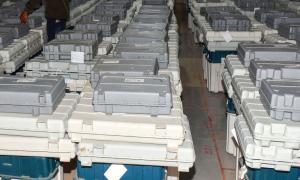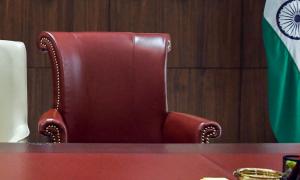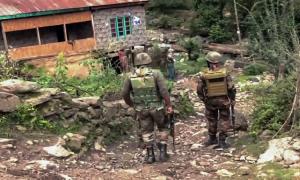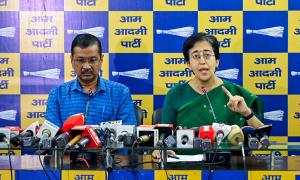With the Darjeeling issue still unresolved, the Left Front government in West Bengal has a new worry in dissenting voices from Cooch Behar district demanding a separate state.
The movement under the banner 'Greater Coochbehar People's Association,' had a bloody start on September 20, leading to the death of two agitators and three policemen, including DSP Mustaq Ahmed of Kalimpong.
After the prolonged GNLF movement, as well as the agitations by the 'Uttar Banga Tafsili Jati/Jan Jati Adivasi Sangathan', Uttarkhand and Kamtapur Liberation Organisation, the GCPA's demand has put the Buddhadev Bhattacharjee government in a fix.
The GCPA agitation, according to intelligence sources, originated from the 'Hitosadhani Andolan' that galvanised the
erstwhile princely state of Cooch Behar between 1947 and 1950 before the instrument of accession to the Union of India was finalised.
The sources said more than 5 decades after Cooch Behar's accession to the Union of India, the movement by the GCPA gave rise to speculation that the cry for statehood has come from those 'loyal to the erstwhile royalty'.
The speculation, they said, had basis in GCPA's claim that the instrument of accession, signed by the then King Raja
Jagatdwinpendranarayan Bhup Bahadur with the Centre in 1949 envisaged that Cooch Behar would be accorded a union territory status.
"We have moved the President, the prime minister and the union home minister with our demand and are still hopeful of the Centre accepting them," according to GCPA leader Bangshi Badan Burman, spearheading the movement for statehood.
CPI-M to use development to counter separatists
He was of the view that the state government could do little for GCPA's demand and only the central government was capable of 'doing justice'.
Chief Minister Buddhadev Bhattacharjee, however, has rejected the demand for a separate state, claiming that the GCPA movement had the backing of opposition Trinamool Congress, Congress and the Bharatiya Janata Party, while the ULFA was 'providing logistic support'.
West Bengal to set up more police stations to thwart ISI
Bhattacharjee, during his September 24 visit to Cooch Behar, asserted no separatist demand would be tolerated by his government but the backwardness of the North Bengal district that was a cause for resentment, would be looked into.
Burman disagreed with the chief minister's allegation that the GCPA movement was separatist and said the state government should honour the 1949 treaty by which the Cooch Behar state was merged with the Indian Union.
"The treaty was not honoured and Cooch Behar remains a backward area with land of farmers taken away in the name of the government's land reforms," he alleged.
Already at the receiving end of GNLF chief Ghising's ever-changing stand on the election to the Darjeeling Gorkha Hill Council as also his oft-repeated demand for a separate 'Gorkhaland', a worried chief minister has dubbed the GCPA movement as having the 'backing' of separatist forces like the KLO.
At his meeting with local Left Front leaders, Bhattacharjee alleged that after being flushed out from jungles in Bhutan, the KLO might have regrouped under the 'GCPA banner'.
"Greater Cooch Behar demand is a pipedream and an absurd idea altogether," he said.
But Agriculture minister Kamal Guha's statement that the September 20 violence at Khagrabari More, near Cooch Behar town, should be looked into in isolation and that the failure to develop the area should be blamed for the ugly turn of events, has put the chief minister in a difficult spot.
The Communist Party of India (Marxist)-led Left Front has asked Guha to be cautious in making statements about the GCPA movement.
The CPI(M) has said there was no objection from the people of Cooch Behar during the 1949 annexation treaty.
"We strongly oppose any separatist demand and will launch a strong public movement to counter any separatist threat designed to divide the state," CPI(M) state secretary Anil Biswas said.








More from rediff